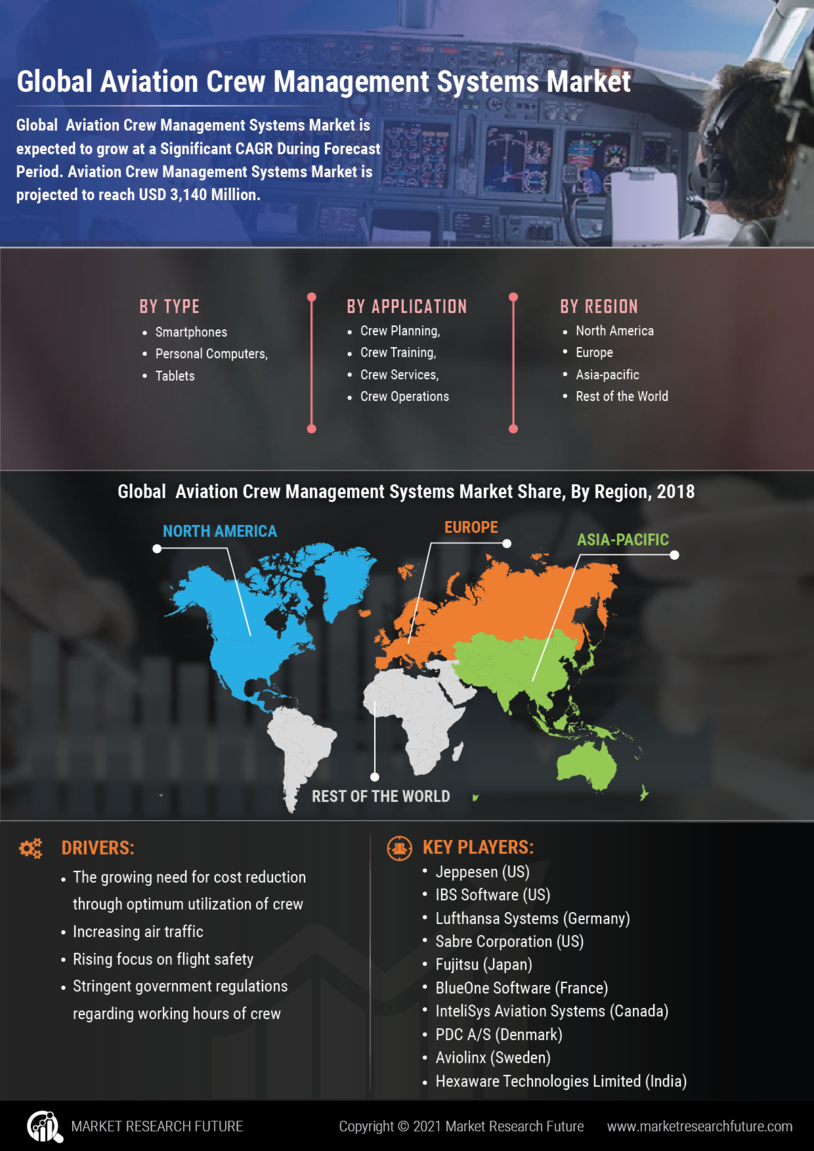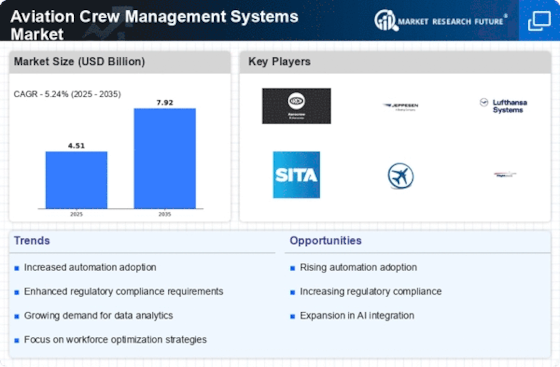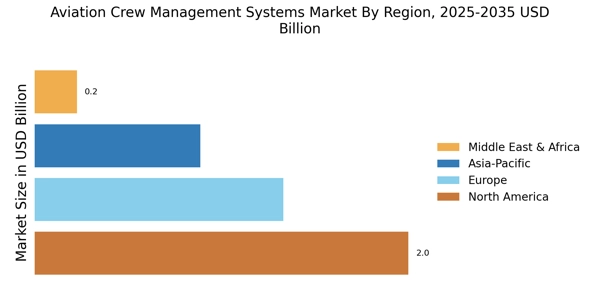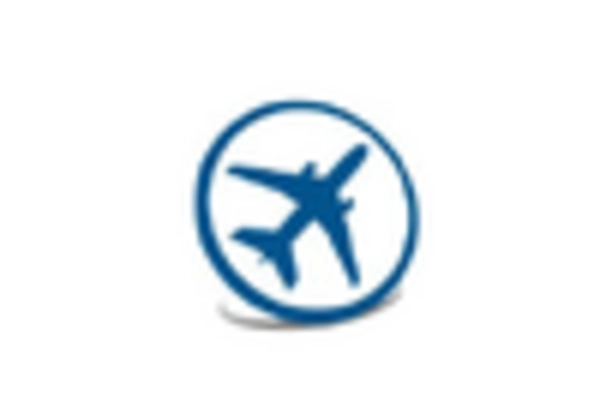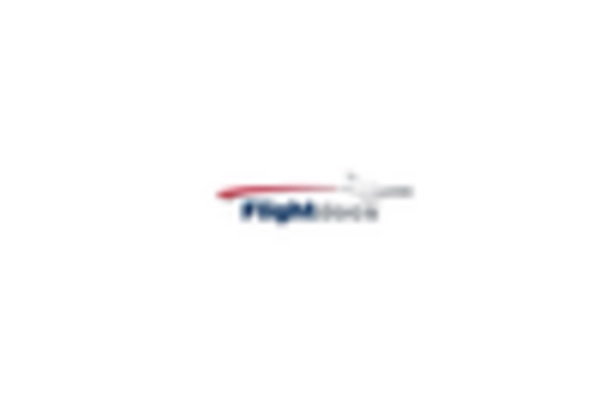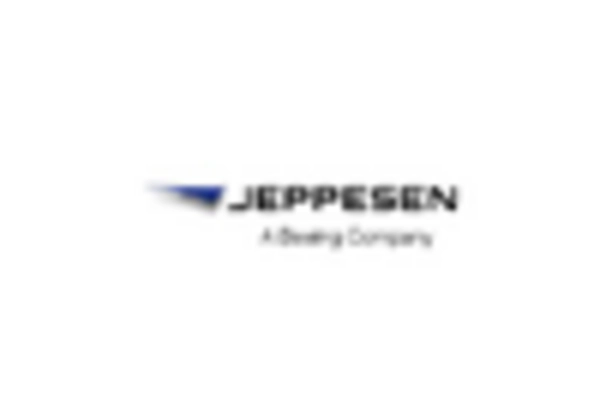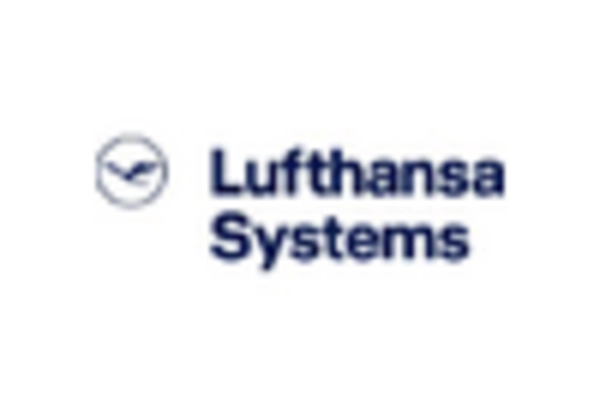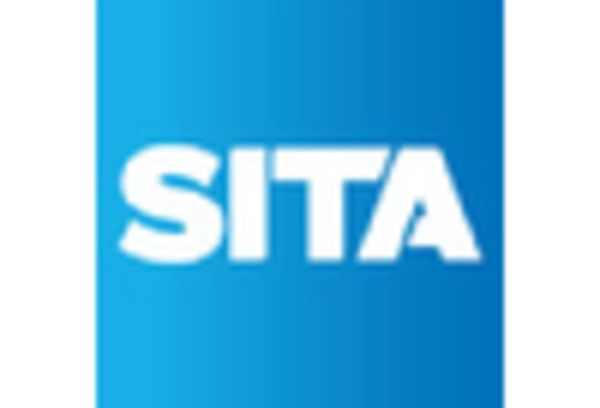Regulatory Compliance
The aviation crew management systems Market is significantly influenced by the need for regulatory compliance. Airlines are required to adhere to stringent regulations regarding crew scheduling, rest periods, and training requirements. Non-compliance can lead to severe penalties and operational disruptions. As a result, there is a growing demand for crew management systems that can ensure adherence to these regulations while optimizing crew schedules. Recent statistics suggest that approximately 40% of airlines have reported challenges in maintaining compliance due to outdated systems. Consequently, the market for advanced crew management solutions is expected to expand as airlines invest in technologies that automate compliance tracking and reporting, thereby mitigating risks associated with regulatory violations.
Technological Advancements
The Aviation Crew Management Systems Market is experiencing a surge in technological advancements that enhance operational efficiency. Innovations such as artificial intelligence and machine learning are being integrated into crew management systems, allowing for better scheduling, predictive analytics, and real-time decision-making. According to recent data, the adoption of these technologies is projected to increase by 25% over the next five years, as airlines seek to optimize crew utilization and reduce operational costs. Furthermore, the implementation of cloud-based solutions is facilitating seamless data sharing and collaboration among crew members, thereby improving overall productivity. This trend indicates a shift towards more sophisticated systems that not only streamline processes but also provide valuable insights into crew performance and operational metrics.
Data-Driven Decision Making
The Aviation Crew Management Systems Market is witnessing a shift towards data-driven decision making. Airlines are increasingly leveraging data analytics to inform their crew management strategies, enabling them to make more informed decisions regarding scheduling, training, and resource allocation. The ability to analyze historical data and predict future trends is becoming essential for optimizing crew performance and operational efficiency. Recent findings indicate that airlines utilizing data analytics in their crew management processes can improve operational performance by up to 20%. This trend highlights the growing importance of advanced crew management systems that incorporate robust data analytics capabilities, allowing airlines to adapt to changing market conditions and enhance their competitive edge.
Focus on Operational Efficiency
The Aviation Crew Management Systems Market is driven by an increasing emphasis on operational efficiency. Airlines are under constant pressure to reduce costs while maintaining high service levels. Effective crew management is a critical component of this equation, as it directly impacts flight schedules, crew availability, and overall operational performance. Data indicates that airlines utilizing advanced crew management systems can achieve up to a 15% reduction in operational costs. This is primarily due to improved scheduling practices and better resource allocation. As airlines continue to seek ways to enhance their operational frameworks, the demand for sophisticated crew management solutions is likely to grow, enabling them to streamline processes and improve profitability.
Employee Satisfaction and Retention
The Aviation Crew Management Systems Market is increasingly recognizing the importance of employee satisfaction and retention. Airlines are focusing on creating a positive work environment for their crew members, which is essential for maintaining high levels of service and operational efficiency. Advanced crew management systems facilitate better work-life balance by providing flexible scheduling options and ensuring compliance with rest regulations. Research indicates that airlines that prioritize crew well-being experience lower turnover rates and higher employee morale. This trend suggests that the market for crew management systems will continue to expand as airlines invest in solutions that enhance employee satisfaction, ultimately leading to improved service quality and operational performance.
